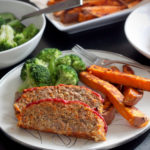It can take weeks to become accustomed to hot weather. That’s the time we are more vulnerable to heat illness, which can progress to life-threatening heat stroke. These tips can help you keep your cool, and recognize when things are heating up to dangerous levels.
Ease into activity. If you’re planning to be active during the summertime, ease into it. If you like to hit the asphalt, aim for shorter runs at first. If gardening is more your speed, go slow for your first few weeks.
Wear the right clothes. Preventing heat-related illness is partly about your clothes; light-colored, loose-fitting clothing is best. The tight, black pants that are popular among athletes are one of the worst things you can wear in the heat.
Know the signs of heat exhaustion. Heat exhaustion comes before the more serious heat stroke.
- Nausea with an urge to vomit.
- Weakness and cramps.
- Faintness or dizziness.
Life-threatening heat stroke is the culmination of untreated heat illness and is a true medical emergency.
Preventing full-blown heatstroke means listening to your body and cooling off when you don’t feel right. Rest and cool down by drinking a cold beverage or using ice packs in the back of your neck, groin and armpits.
Those who tough it out, try to power through or ignore it are more likely to see their condition deteriorate. If you see someone who is in danger of heat stroke, especially if they show confusion, they need to be cooled off immediately.
Be aware of other heat-related illnesses. Heat cramps and heat syncope are not as serious as heat stroke, but still need attention.
- Heat cramps, typically in the legs, are usually caused by a lack of sodium and potassium, sometimes caused by drinking too much water. The best advice is to drink, but make sure you’re eating food like pretzels or bananas, so your body recovers the sodium and potassium it lost through sweat. The general advice used to be to drink water before you felt thirsty, but more recent evidence supports only drinking when you’re thirsty. Your body knows best.
- Heat syncope is a lack of blood flow to the brain that can result in fainting. Heat syncope can be prevented by walking around or just stepping in place to get your blood pumping. If someone collapses, call 911.



